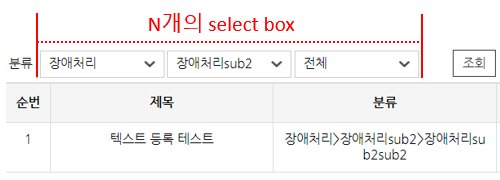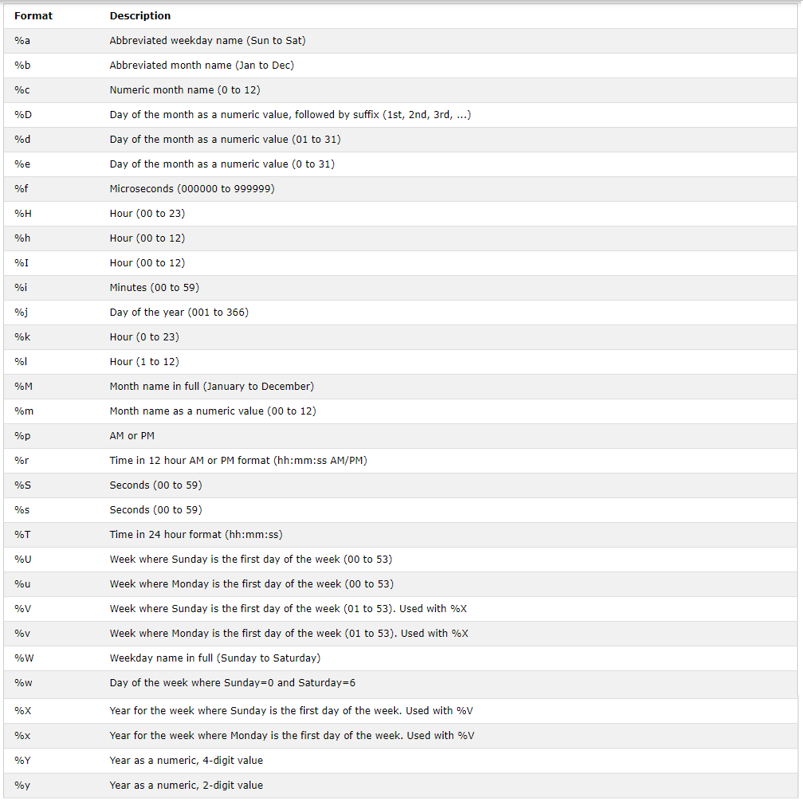package ~.utils;
import java.util.Arrays;
import java.util.HashSet;
import java.util.List;
import java.util.Set;
import java.util.concurrent.atomic.AtomicBoolean;
import org.apache.commons.pool2.impl.GenericObjectPoolConfig;
import org.slf4j.Logger;
import org.slf4j.LoggerFactory;
import redis.clients.jedis.HostAndPort;
import redis.clients.jedis.Jedis;
import redis.clients.jedis.JedisPoolAbstract;
import redis.clients.jedis.JedisPubSub;
import redis.clients.jedis.Protocol;
import redis.clients.jedis.exceptions.JedisConnectionException;
import redis.clients.jedis.exceptions.JedisException;
public class CustomJedisSentinelPool extends JedisPoolAbstract {
protected GenericObjectPoolConfig poolConfig;
protected int connectionTimeout = Protocol.DEFAULT_TIMEOUT;
protected int soTimeout = Protocol.DEFAULT_TIMEOUT;
protected String password;
protected String sentinelPassword;
protected int database = Protocol.DEFAULT_DATABASE;
protected String clientName;
protected Set<MasterListener> masterListeners = new HashSet<MasterListener>();
protected Logger log = LoggerFactory.getLogger(getClass().getName());
private volatile JedisFactory factory;
private volatile HostAndPort currentHostMaster;
private final Object initPoolLock = new Object();
public void setSentinelPassword(String sentinelPassword){
this.sentinelPassword = sentinelPassword;
}
public CustomJedisSentinelPool(String masterName, Set<String> sentinels,
final GenericObjectPoolConfig poolConfig) {
this(masterName, sentinels, poolConfig, Protocol.DEFAULT_TIMEOUT, null, null,
Protocol.DEFAULT_DATABASE);
}
public CustomJedisSentinelPool(String masterName, Set<String> sentinels) {
this(masterName, sentinels, new GenericObjectPoolConfig(), Protocol.DEFAULT_TIMEOUT, null, null,
Protocol.DEFAULT_DATABASE);
}
public CustomJedisSentinelPool(String masterName, Set<String> sentinels, String password) {
this(masterName, sentinels, new GenericObjectPoolConfig(), Protocol.DEFAULT_TIMEOUT, password);
}
public CustomJedisSentinelPool(String masterName, Set<String> sentinels,
final GenericObjectPoolConfig poolConfig, int timeout, final String password) {
this(masterName, sentinels, poolConfig, timeout, password, null, Protocol.DEFAULT_DATABASE);
}
public CustomJedisSentinelPool(String masterName, Set<String> sentinels,
final GenericObjectPoolConfig poolConfig, final int timeout) {
this(masterName, sentinels, poolConfig, timeout, null, null, Protocol.DEFAULT_DATABASE);
}
public CustomJedisSentinelPool(String masterName, Set<String> sentinels,
final GenericObjectPoolConfig poolConfig, final String password) {
this(masterName, sentinels, poolConfig, Protocol.DEFAULT_TIMEOUT, password);
}
public CustomJedisSentinelPool(String masterName, Set<String> sentinels,
final GenericObjectPoolConfig poolConfig, int timeout, final String password, final String sentinelPassword ,
final int database) {
this(masterName, sentinels, poolConfig, timeout, timeout, password, sentinelPassword, database);
}
public CustomJedisSentinelPool(String masterName, Set<String> sentinels,
final GenericObjectPoolConfig poolConfig, int timeout, final String password, final String sentinelPassword,
final int database, final String clientName) {
this(masterName, sentinels, poolConfig, timeout, timeout, password, sentinelPassword, database, clientName);
}
public CustomJedisSentinelPool(String masterName, Set<String> sentinels,
final GenericObjectPoolConfig poolConfig, final int timeout, final int soTimeout,
final String password, final String sentinelPassword, final int database) {
this(masterName, sentinels, poolConfig, timeout, soTimeout, password, sentinelPassword, database, null);
}
public CustomJedisSentinelPool(String masterName, Set<String> sentinels,
final GenericObjectPoolConfig poolConfig, final int connectionTimeout, final int soTimeout,
final String password, final String sentinelPassword, final int database, final String clientName) {
this.poolConfig = poolConfig;
this.connectionTimeout = connectionTimeout;
this.soTimeout = soTimeout;
this.password = password;
this.sentinelPassword = sentinelPassword;
this.database = database;
this.clientName = clientName;
HostAndPort master = initSentinels(sentinels, masterName);
initPool(master);
}
@Override
public void destroy() {
for (MasterListener m : masterListeners) {
m.shutdown();
}
super.destroy();
}
public HostAndPort getCurrentHostMaster() {
return currentHostMaster;
}
private void initPool(HostAndPort master) {
synchronized(initPoolLock){
if (!master.equals(currentHostMaster)) {
currentHostMaster = master;
if (factory == null) {
factory = new JedisFactory(master.getHost(), master.getPort(), connectionTimeout,
soTimeout, password, database, clientName);
initPool(poolConfig, factory);
} else {
factory.setHostAndPort(currentHostMaster);
// although we clear the pool, we still have to check the
// returned object
// in getResource, this call only clears idle instances, not
// borrowed instances
internalPool.clear();
}
// log.info("Created JedisPool to master at " + master);
}
}
}
private HostAndPort initSentinels(Set<String> sentinels, final String masterName) {
HostAndPort master = null;
boolean sentinelAvailable = false;
// log.info("Trying to find master from available Sentinels...");
for (String sentinel : sentinels) {
final HostAndPort hap = HostAndPort.parseString(sentinel);
// log.debug("Connecting to Sentinel {}", hap);
Jedis jedis = null;
try {
jedis = new Jedis(hap);
if(this.sentinelPassword != null && !this.sentinelPassword.isEmpty()){
jedis.auth(this.sentinelPassword);
}
List<String> masterAddr = jedis.sentinelGetMasterAddrByName(masterName);
// connected to sentinel...
sentinelAvailable = true;
if (masterAddr == null || masterAddr.size() != 2) {
// log.warn("Can not get master addr, master name: {}. Sentinel: {}", masterName, hap);
continue;
}
master = toHostAndPort(masterAddr);
// log.debug("Found Redis master at {}", master);
break;
} catch (JedisException e) {
// resolves #1036, it should handle JedisException there's another chance
// of raising JedisDataException
log.warn(
"Cannot get master address from sentinel running @ {}. Reason: {}. Trying next one.", hap,
e.toString());
} finally {
if (jedis != null) {
jedis.close();
}
}
}
if (master == null) {
if (sentinelAvailable) {
// can connect to sentinel, but master name seems to not
// monitored
throw new JedisException("Can connect to sentinel, but " + masterName
+ " seems to be not monitored...");
} else {
throw new JedisConnectionException("All sentinels down, cannot determine where is "
+ masterName + " master is running...");
}
}
// log.info("Redis master running at " + master + ", starting Sentinel listeners...");
for (String sentinel : sentinels) {
final HostAndPort hap = HostAndPort.parseString(sentinel);
MasterListener masterListener = new MasterListener(masterName, hap.getHost(), hap.getPort());
// whether MasterListener threads are alive or not, process can be stopped
masterListener.setDaemon(true);
masterListeners.add(masterListener);
masterListener.start();
}
return master;
}
private HostAndPort toHostAndPort(List<String> getMasterAddrByNameResult) {
String host = getMasterAddrByNameResult.get(0);
int port = Integer.parseInt(getMasterAddrByNameResult.get(1));
return new HostAndPort(host, port);
}
@Override
public Jedis getResource() {
while (true) {
try {
Jedis jedis = super.getResource();
jedis.setDataSource(this);
// get a reference because it can change concurrently
final HostAndPort master = currentHostMaster;
final HostAndPort connection = new HostAndPort(jedis.getClient().getHost(), jedis.getClient()
.getPort());
if (master.equals(connection)) {
// connected to the correct master
return jedis;
} else {
returnBrokenResource(jedis);
}
} catch (Exception e) {
e.printStackTrace();
throw e;
}
}
}
@Override
protected void returnBrokenResource(final Jedis resource) {
if (resource != null) {
returnBrokenResourceObject(resource);
}
}
@Override
protected void returnResource(final Jedis resource) {
if (resource != null) {
resource.resetState();
returnResourceObject(resource);
}
}
protected class MasterListener extends Thread {
protected String masterName;
protected String host;
protected int port;
protected long subscribeRetryWaitTimeMillis = 5000;
protected volatile Jedis j;
protected AtomicBoolean running = new AtomicBoolean(false);
protected MasterListener() {
}
public MasterListener(String masterName, String host, int port) {
super(String.format("MasterListener-%s-[%s:%d]", masterName, host, port));
this.masterName = masterName;
this.host = host;
this.port = port;
}
public MasterListener(String masterName, String host, int port,
long subscribeRetryWaitTimeMillis) {
this(masterName, host, port);
this.subscribeRetryWaitTimeMillis = subscribeRetryWaitTimeMillis;
}
@Override
public void run() {
running.set(true);
while (running.get()) {
j = new Jedis(host, port);
if(sentinelPassword != null && !sentinelPassword.isEmpty()){
j.auth(sentinelPassword);
}
try {
// double check that it is not being shutdown
if (!running.get()) {
break;
}
/*
* Added code for active refresh
*/
List<String> masterAddr = j.sentinelGetMasterAddrByName(masterName);
if (masterAddr == null || masterAddr.size() != 2) {
log.warn("Can not get master addr, master name: {}. Sentinel: {}:{}.",masterName,host,port);
}else{
initPool(toHostAndPort(masterAddr));
}
j.subscribe(new JedisPubSub() {
@Override
public void onMessage(String channel, String message) {
log.debug("Sentinel {}:{} published: {}.", host, port, message);
String[] switchMasterMsg = message.split(" ");
if (switchMasterMsg.length > 3) {
if (masterName.equals(switchMasterMsg[0])) {
initPool(toHostAndPort(Arrays.asList(switchMasterMsg[3], switchMasterMsg[4])));
} else {
log.debug(
"Ignoring message on +switch-master for master name {}, our master name is {}",
switchMasterMsg[0], masterName);
}
} else {
log.error(
"Invalid message received on Sentinel {}:{} on channel +switch-master: {}", host,
port, message);
}
}
}, "+switch-master");
} catch (JedisException e) {
if (running.get()) {
log.error("Lost connection to Sentinel at {}:{}. Sleeping 5000ms and retrying.", host,
port, e);
try {
Thread.sleep(subscribeRetryWaitTimeMillis);
} catch (InterruptedException e1) {
log.error("Sleep interrupted: ", e1);
}
} else {
log.debug("Unsubscribing from Sentinel at {}:{}", host, port);
}
} finally {
j.close();
}
}
}
public void shutdown() {
try {
log.debug("Shutting down listener on {}:{}", host, port);
running.set(false);
// This isn't good, the Jedis object is not thread safe
if (j != null) {
j.disconnect();
}
} catch (Exception e) {
log.error("Caught exception while shutting down: ", e);
}
}
}
}





